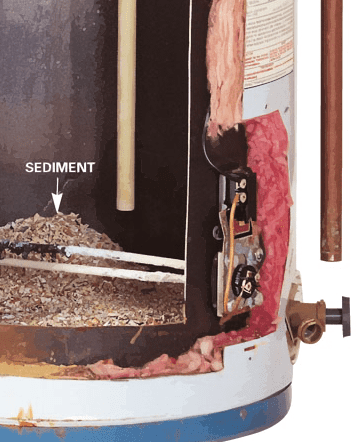Handling the Typical Water Heater Crisis Scenarios
Handling the Typical Water Heater Crisis Scenarios
Blog Article
In this article down the page you might get a bunch of sound additional info all about Is Your Water Heater Leaking?.

A water heater is among one of the most crucial standard devices that can be discovered in a house. With water heaters, you don't require to undergo the stress and anxiety of home heating water manually every time there is a demand to wash, do the laundry, or the recipes. Nonetheless, there is constantly an opportunity that your hot water heater would act up just like the majority of mechanical devices.
It is very important to note any kind of little breakdown as well as tackle it quickly before things get out of hand. Many times, your hot water heater begins to malfunction when there is an accumulation of debris as a result of constant use. As a preventative measure, periodic flushing of your hot water heater is suggested to avoid debris accumulation and stop useful failing.
Usual hot water heater emergency situations and also just how to take care of them
Insufficient hot water
Dealing with a not enough supply of hot water can be irritating. It may be that the hot water heater can't sustain the warm water need for your apartment or condo. To handle this trouble, you might try to change your heater's temperature level dial and wait on a couple of minutes. You can ask for the assistance of a professional plumber if the issue lingers. You might update your water heating unit to one with a larger capacity.
Varying water temperature.
Your water heating unit can begin creating water of various temperature levels usually ice hot or cold hot. There may be a need to change either the heating or the thermostat device of your water heater.
Dripping hot water heater container.
In this circumstance, you need to turn off your water heating system, enable it to cool down, and thoroughly look for the source of the issue. At times, all you require to do is to tighten up a couple of screws or pipe connections in situations of small leakages. If this does not function and also the leak lingers, you might require to utilize the services of a professional for an ideal substitute.
Discolored or stinky water
When this happens, you require to understand if the issue is from the container or the water resource. If there is no amusing smell when you run cool water, then you are certain that it is your water heater that is faulty. The odiferous water can be created by rust or the buildup of bacteria or debris in the water heater container.
Final thought
Some property owners disregard little warning and also minor faults in their water heater system. This just leads to more damage and a possible complete break down of your home appliance. You need to handle your hot water heater faults as quickly as they come up to avoid more expenses as well as unneeded emergency troubles.
With water heaters, you do not need to go through the tension of heating water manually every time there is a demand to take a bath, do the laundry, or the recipes. It might be that the water heater can not support the warm water demand for your apartment or condo. Your water heating system might begin creating water of various temperatures normally ice hot or cold warm. If there is no amusing odor when you run cold water, then you are particular that it is your water heater that is defective. The smelly water can be created by rust or the buildup of microorganisms or sediments in the water heater container.
Common Water Heater Issues and What You Should Do
What Type of Water Heater Do You Have?
Before we begin it’s first important that you identify the type of water heater you have on your property. There are two main types of water heaters out there: conventional and high efficiency.
Both of these types of products typically use either gas or electricity to heat power. There are also solar water heaters that use a thermal collector on the roof or yard to heat the water.
While these models are not as common, they can cut heating costs in half. In this article, we will focus on conventional and high efficiency.
How Do My Electric and Gas Water Heater Work?
Though they look similar, electric and gas water heaters work very differently. It’s important to know their basic function because often problems can be specific to the heating source.
In the electric model, a thermostat on the side of the machine detects the temperature of the water in the tank. When the temperature needs to rise electricity flows to a heating element suspended in the water.
Gas models also use a thermostat device — typically with a mercury sensor at the tip and an additional sensor called a thermocouple. The thermocouple detects whether the pilot light is on and controls the flow of gas.
When the thermostat drops below the appropriate level gas is released which becomes ignited by the pilot light. The flame heats the bottom of the water tank which causes hot water to rise and cold water to drop.
This natural circulation continues until the water reaches the desired temperature. Then, the thermostat triggers the gas control valve to shut off the flow of gas.
What Are the Most Common Issues and How Do You Fix Them?
https://happyhiller.com/blog/common-water-heater-issues-and-what-you-should-do/

We had been guided to that editorial on Common Hot Water Heater Problems through someone on another domain. Kindly take the time to share this blog if you appreciated it. Thanks so much for taking the time to read it.
Leaks? Contact us! Report this page